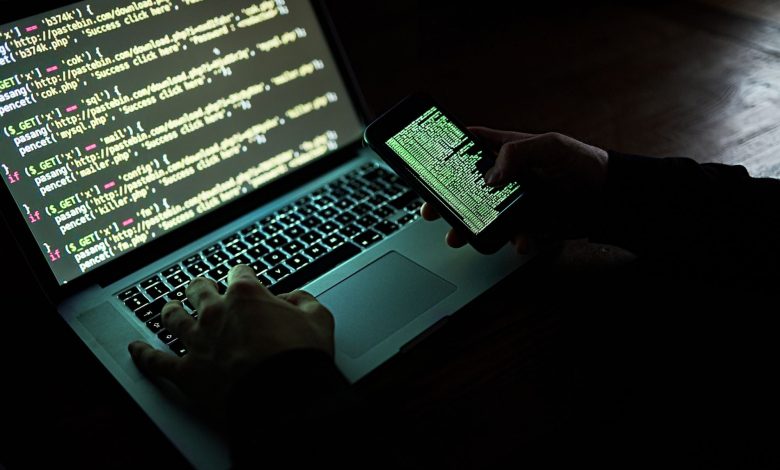The Dark Web and Cyber Warfare: Analyzing bclub’s Role in State-sponsored Attacks

Introduction
In recent years, the dark web has become a breeding ground for cyber warfare and state-sponsored attacks. These attacks have the potential to cause significant damage to governments, organizations, and individuals alike. One notorious group that has gained attention in the realm of state-sponsored attacks is bclub. In this article, we will delve into the dark web, explore the concept of cyber warfare, and analyze the role of bclub in state-sponsored attacks.
I. The Dark Web: A Hidden World of Illicit Activities
The dark web is a hidden part of the internet that can only be accessed through special software, such as Tor. It provides anonymity to its users and is known for hosting various illicit activities, including the sale of drugs, weapons, and stolen data. State-sponsored actors often utilize the dark web to communicate, plan, and execute cyber attacks.
II. Cyber Warfare: The New Battlefield
Cyber warfare refers to the use of digital technologies to launch attacks on computer systems, networks, and infrastructure. State-sponsored actors engage in cyber warfare to gain a strategic advantage, gather intelligence, disrupt essential services, and even cause physical harm. These attacks can target governments, military organizations, critical infrastructure, or private businesses.
A. Types of Cyber Attacks
- Phishing Attacks: In these attacks, attackers trick individuals into divulging sensitive information, such as passwords or credit card details, by posing as legitimate entities.
- Malware Attacks: Malware, including viruses, worms, and ransomware, is used to gain unauthorized access to computer systems or disrupt their functioning.
- Distributed Denial of Service (DDoS) Attacks: These attacks overload a target’s network or website with an overwhelming amount of traffic, rendering it inaccessible to legitimate users.
B. State-sponsored Attacks
State-sponsored attacks are orchestrated by governments or government-backed entities. These attacks are usually conducted with political or strategic motives, aiming to gather intelligence, disrupt adversaries, or inflict damage on critical infrastructure.
III. bclub: A Notorious Player in State-sponsored Attacks
bclub is a notorious hacking group that has gained notoriety for its involvement in state-sponsored attacks. This group is believed to operate on the dark web and has been linked to several high-profile cyber attacks targeting governments and organizations worldwide. Their attacks have ranged from espionage and data theft to sabotage and disruption of critical infrastructure.
A. Motives and Objectives
bclub’s motives and objectives can vary depending on the interests of the state or entity they are working for. They may seek to gather intelligence, disrupt adversaries, or even create chaos and confusion in targeted countries or organizations.
B. Tactics and Techniques
bclub employs sophisticated tactics and techniques to carry out their attacks. They often use social engineering, spear-phishing campaigns, and zero-day exploits to gain access to their targets’ systems. Once inside, they may deploy malware, establish backdoors, or exploit vulnerabilities to maintain persistence and carry out their objectives.
C. Notable Attacks
bclub has been linked to several notable attacks. These include the 2016 attack on the Democratic National Committee (DNC), where sensitive emails were leaked to influence the U.S. presidential election. They have also targeted critical infrastructure, such as power grids and transportation systems, with the potential to cause widespread disruption and damage.
IV. Combating State-sponsored Attacks
State-sponsored attacks pose a significant challenge for governments and organizations. It requires a multi-faceted approach to effectively combat and mitigate the risks associated with such attacks.
A. Enhancing Cybersecurity Measures
Governments and organizations need to invest in robust cybersecurity measures to protect their systems and networks. This includes implementing strong authentication mechanisms, regularly updating software and systems, and conducting thorough security audits.
B. International Cooperation and Information Sharing
To counter state-sponsored attacks effectively, international cooperation and information sharing among governments, organizations, and cybersecurity agencies are crucial. Sharing threat intelligence, best practices, and collaborating on investigations can help identify and mitigate attacks at an early stage.
C. Developing Cyber Defense Capabilities
Building strong cyber defense capabilities is essential to defend against state-sponsored attacks. This involves training cybersecurity professionals, developing advanced technologies, and creating incident response teams capable of handling sophisticated attacks.
Conclusion
The dark web and state-sponsored cyber warfare have emerged as significant threats to governments and organizations worldwide. The activities of groups like bclub.mp highlight the need for robust cybersecurity measures, international cooperation, and the development of strong cyber defense capabilities. By staying vigilant and proactive in combating state-sponsored attacks, we can better protect ourselves and mitigate the risks associated with cyber warfare.




